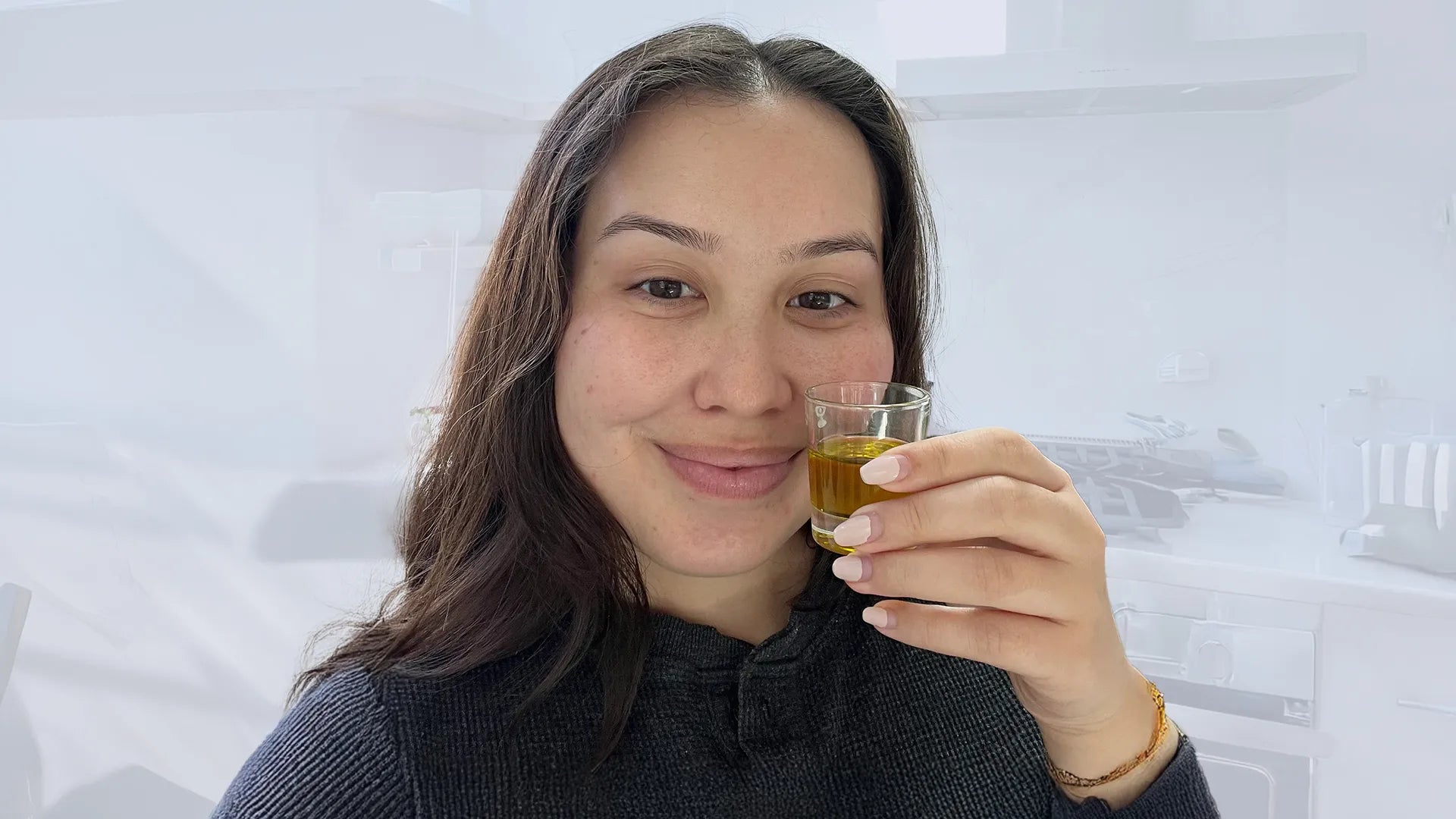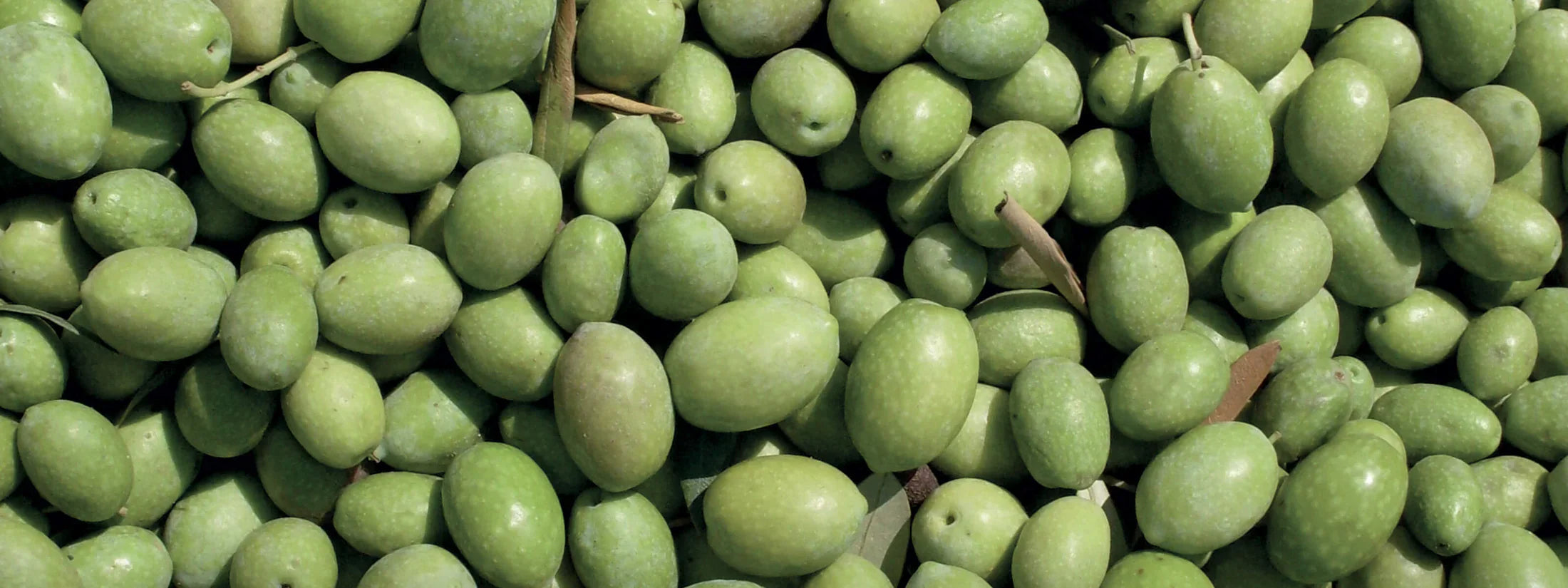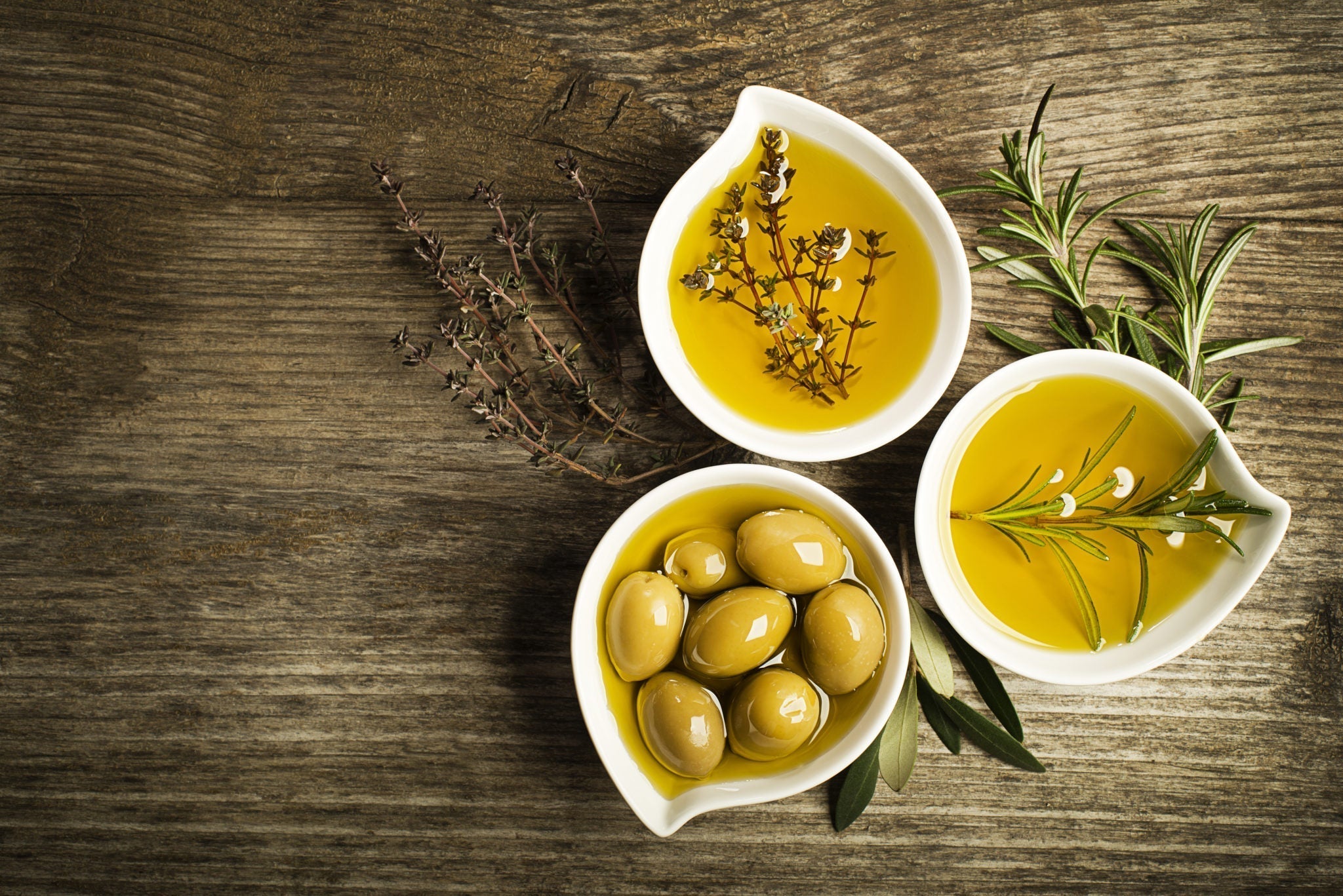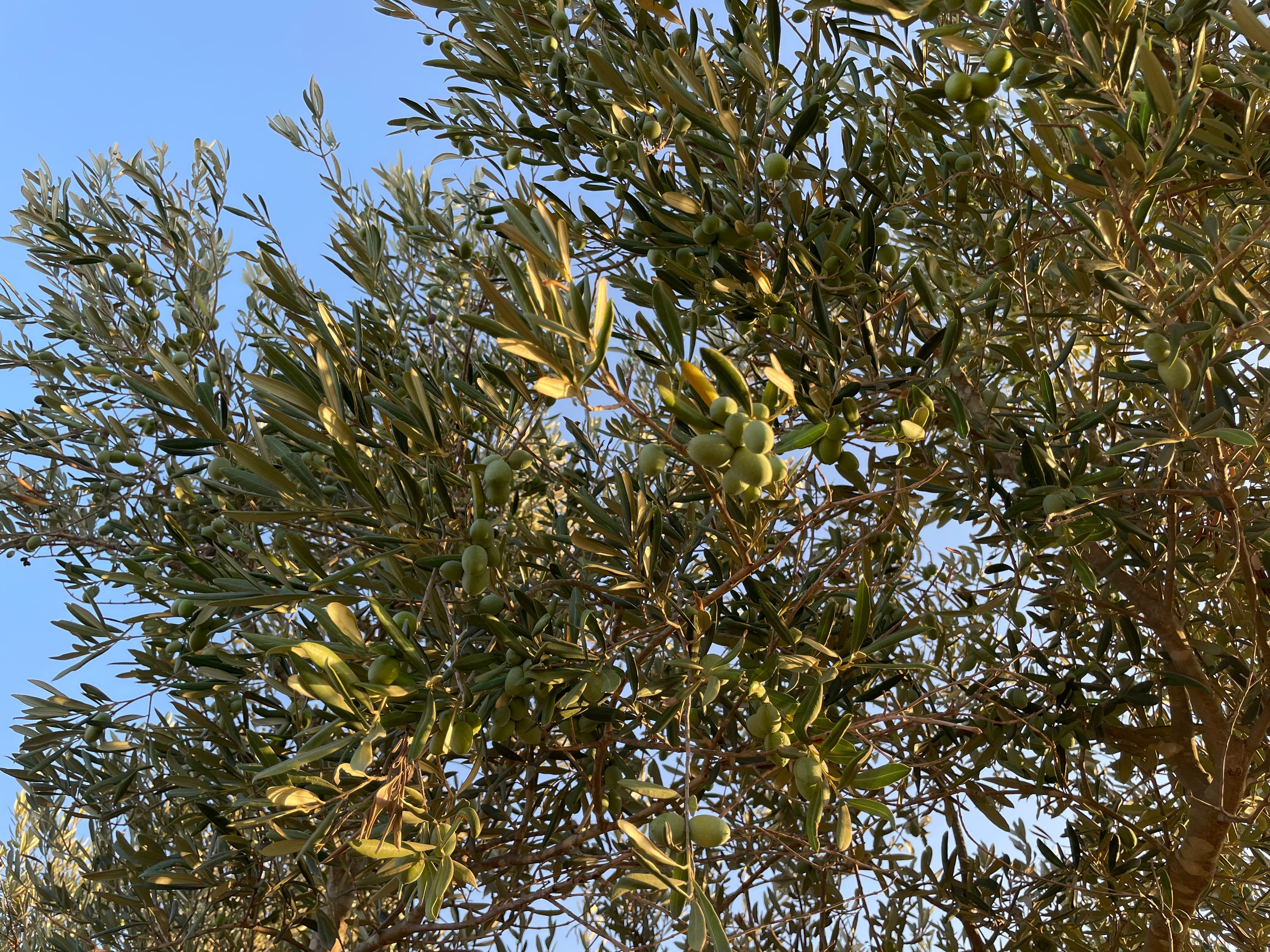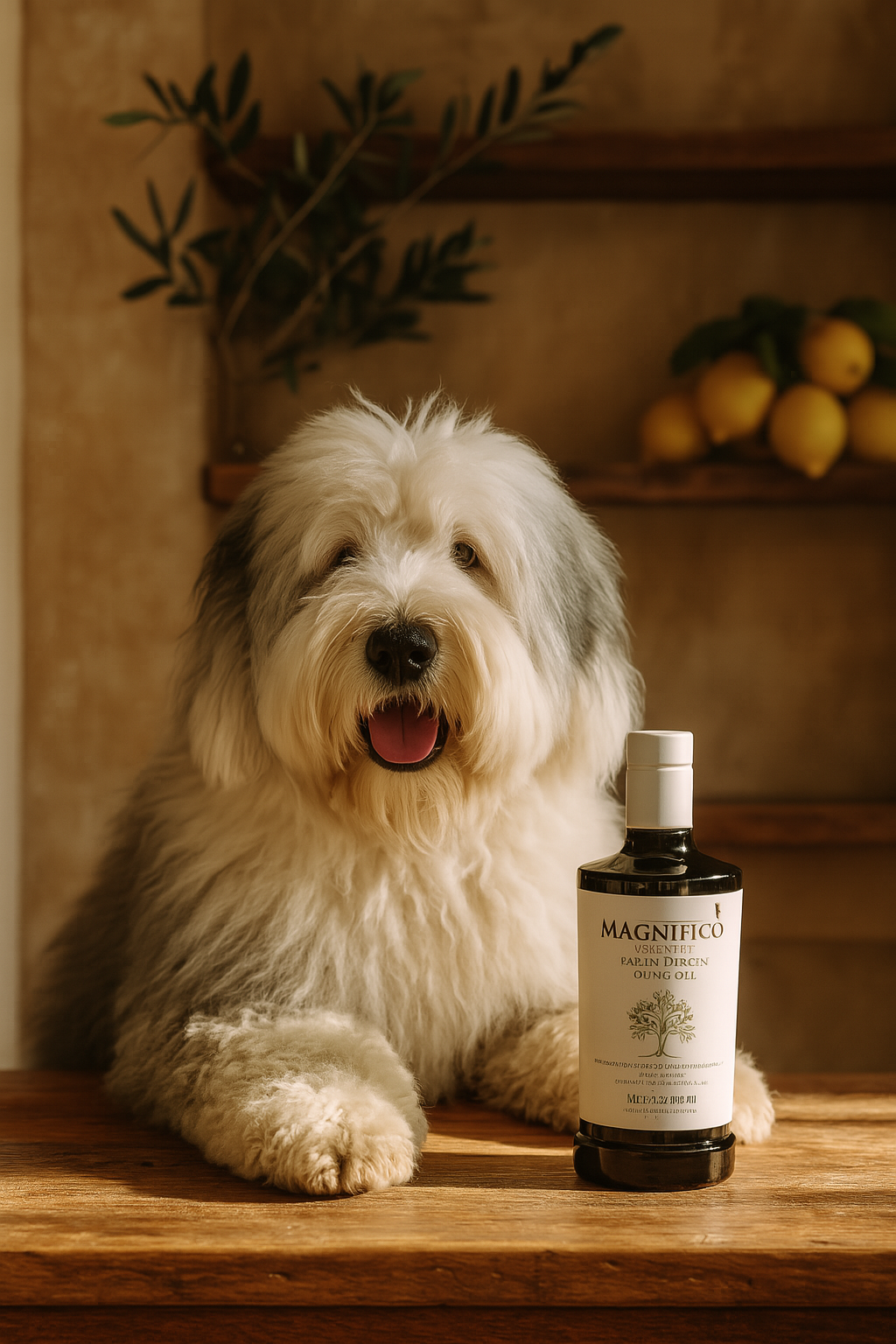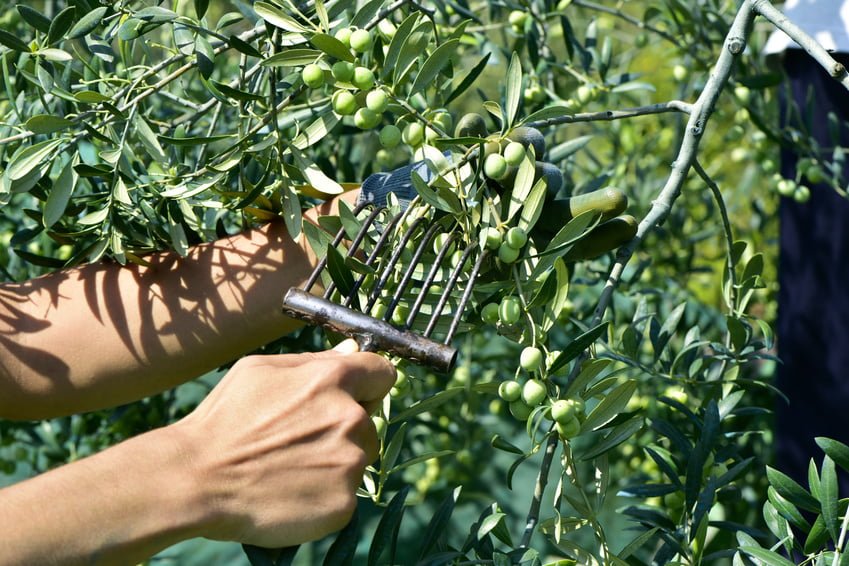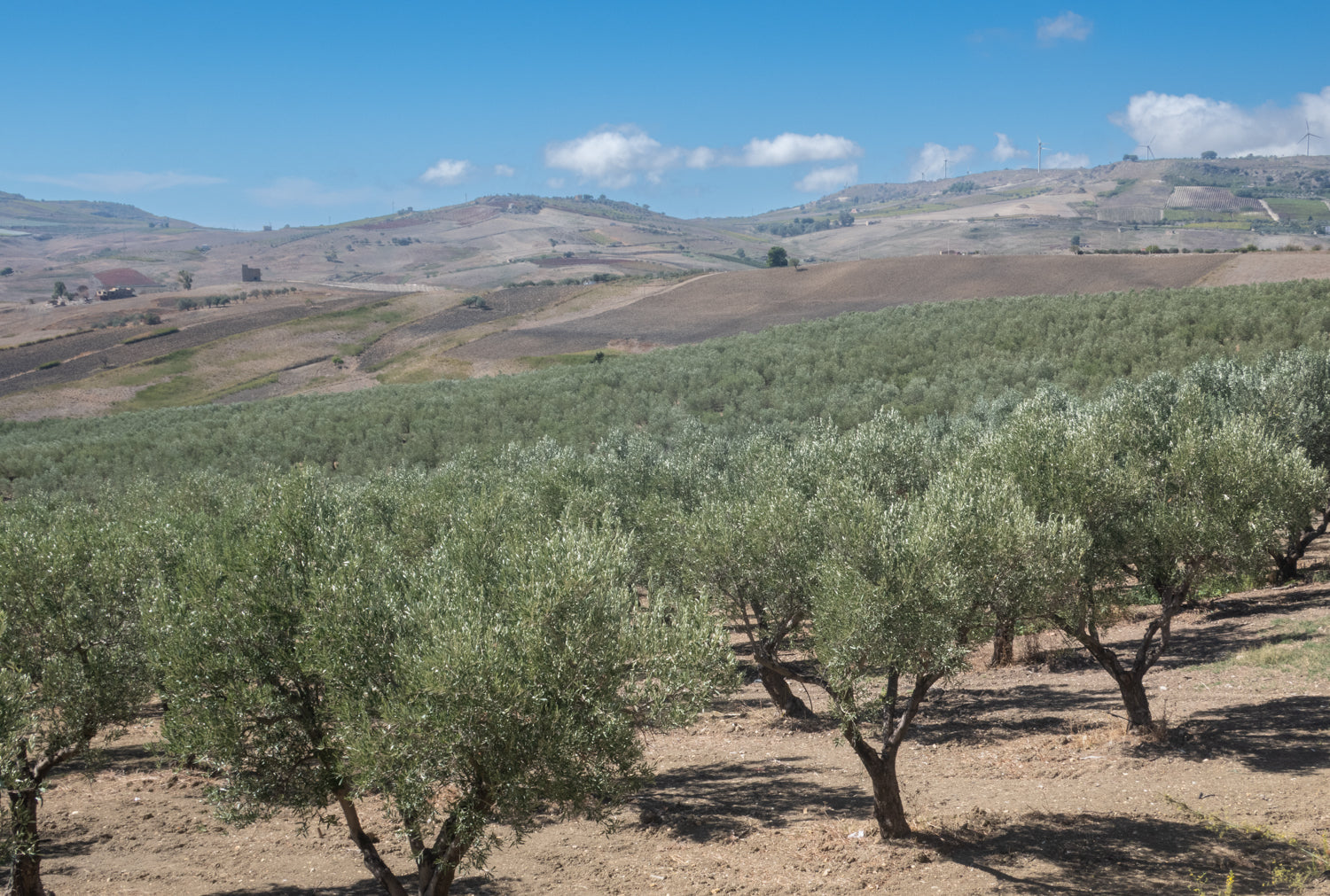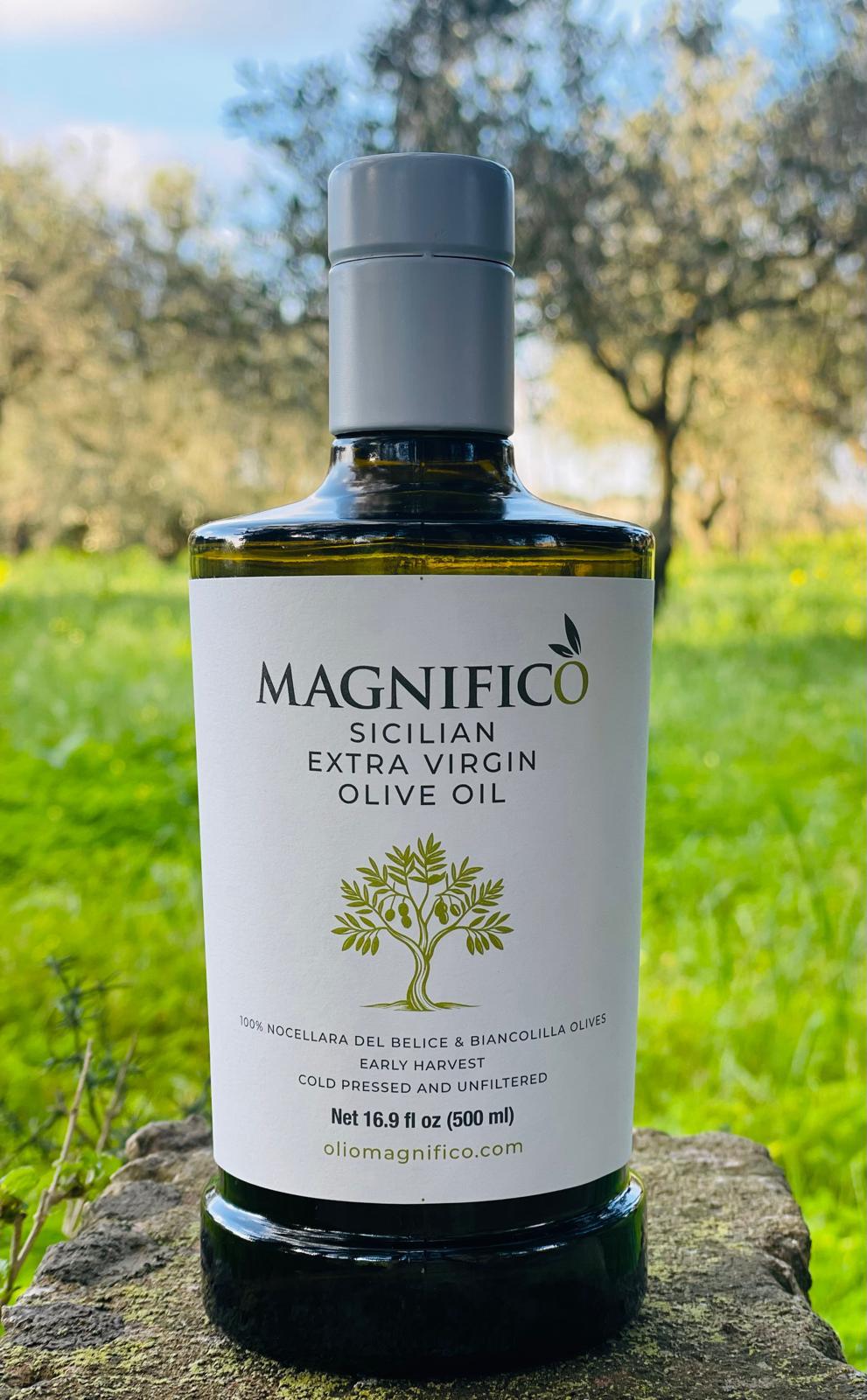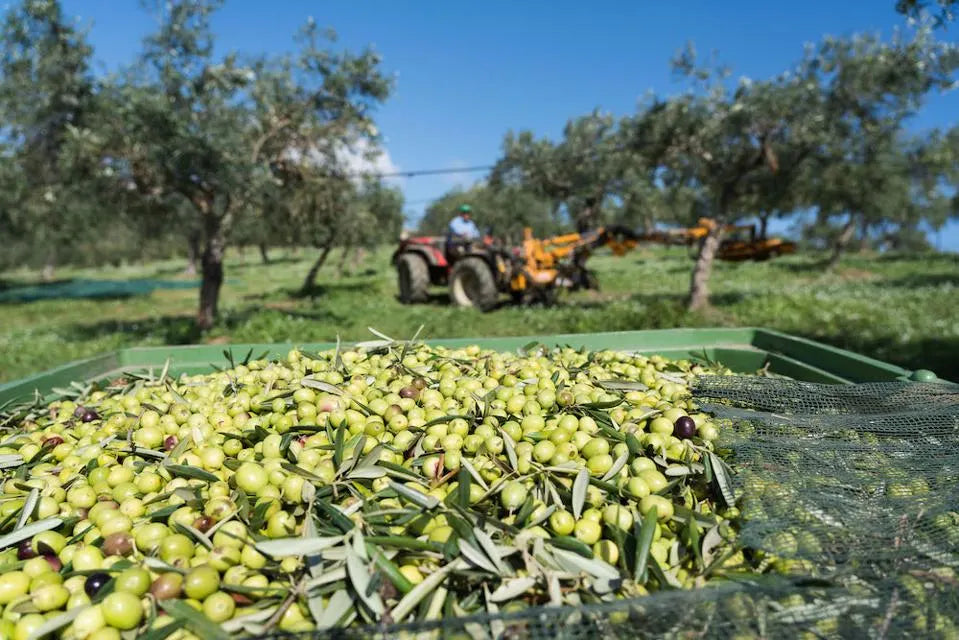
Polyphenols in Sicilian Extra Virgin Olive Oil: The Secret to Fighting Inflammation and Boosting Heart Health
What Are Polyphenols (and Why Do They Matter)?
Polyphenols are a large family of naturally occurring plant compounds found in foods like fruits, vegetables, tea, wine, and olive oil. They act as powerful antioxidants in the body, meaning they help neutralize harmful free radicals and reduce inflammation (mediterraneanliving.com). In extra virgin olive oil (EVOO), scientists have identified over 30 different polyphenols (mediterraneanliving.com). These include standout molecules like oleocanthal and hydroxytyrosol, which contribute to both the flavor and health properties of high-quality olive oil. If you’ve ever felt a slight peppery burn at the back of your throat from fresh olive oil, that’s the oleocanthal – a sure sign of those beneficial polyphenols at work (Dr. Andrew Weil) (papavince.com).
Polyphenols are more than just buzzworthy micronutrients; they’re one of the big reasons olive oil is considered a superfood. They have anti-inflammatory effects, help protect cells from damage, and have been linked to a lower risk of many chronic diseases (mediterraneanliving.com). In short, polyphenols are a key part of why “food is medicine,” and olive oil is an especially rich source.
Sicilian Extra Virgin Olive Oil: A Polyphenol Powerhouse
Not all olive oils are created equal. Extra virgin olive oil – the least processed form – contains far more polyphenols than refined or lower-grade oils (mediterraneanliving.com). Within the EVOO category, oils from certain regions and cultivars stand out. Sicilian extra virgin olive oil has earned a reputation among olive oil enthusiasts and health experts for its exceptionally high polyphenol content and robust flavor. The unique terroir of Sicily – from its mineral-rich volcanic soil to its sun-drenched climate – helps local olive varieties (like the famous Nocellara del Belice olive) develop rich stores of polyphenols. In fact, studies have found that Sicilian olives can match or even exceed the phenolic levels of oils from other regions known for high polyphenols (papavince.com). This means a good Sicilian EVOO isn’t just delicious, it’s extra healthy.
What does a high-polyphenol olive oil taste like? Typically, it will be fresh, grassy, bitter and peppery – a sensory profile that signals those antioxidants are present in force (papavince.compapavince.com). Sicilian oils often achieve a beautiful balance: they deliver the polyphenol punch without overwhelming your palate. The balance of polyphenol content with superior taste profiles makes Sicilian olive oil a prime choice for health-conscious consumers seeking both flavor and nutritional benefits (papavince.com). Premium producers in Sicily (such as Olio Magnifico and others) emphasize early harvesting and quick pressing of their olives to lock in these polyphenols at their peak. The result is an oil with a vibrant green-gold hue, a bouquet of grassy or fruity notes, and that signature peppery finish – all indicators of quality and healthfulness.
Fighting Inflammation with Olive Oil Polyphenols
One of the most celebrated benefits of olive oil polyphenols is their ability to combat inflammation. Chronic inflammation underlies many serious health issues – from arthritis and allergies to heart disease and even cancer. The polyphenols in olive oil help cool down inflammation in several ways. For example, oleocanthal, a polyphenol unique to EVOO, has pain- and inflammation-reducing effects similar to the drug ibuprofen (Advil) (mediterraneanliving.com). It actually targets the same inflammatory pathways, which is why a high-quality EVOO might leave a slight stinging in your throat – it’s a natural anti-inflammatory kick! Integrative medicine pioneer Dr. Andrew Weil often points to extra virgin olive oil as a cornerstone of an anti-inflammatory diet (Dr. Andrew Weil) (drweil.com), precisely because of these kinds of compounds.
Another olive oil polyphenol, hydroxytyrosol, is a potent antioxidant that protects your cells and tissues from damage (mediterraneanliving.com). Together, these compounds help reduce levels of inflammatory markers in the body. In fact, diets rich in monounsaturated fats (like those in olive oil) and polyphenols have been shown to lower C-reactive protein (CRP), a key marker of inflammation in the blood (mediterraneanliving.com). By keeping inflammation in check, polyphenol-rich olive oil may relieve painful conditions and even help manage inflammatory diseases. Research suggests it may benefit people with arthritis, autoimmune disorders, and other chronic inflammatory conditions by reducing pain and swelling (mediterraneanliving.com). And even if you’re generally healthy, everyone can benefit from lower inflammation – it means less day-to-day aches and a lower long-term risk of illness (mediterraneanliving.com).
It’s not an overstatement to call extra virgin olive oil “liquid gold” for your body’s defense system. The International Olive Council notes that populations eating traditional Mediterranean diets (loaded with EVOO) have a lower incidence of many inflammation-related diseases, thanks in part to olive oil’s polyphenols fighting inflammation and oxidative stress (internationaloliveoil.org). Oleocanthal in particular has attracted attention for its potential to impact not just aches and pains, but also neurodegenerative diseases and even certain cancers by quelling inflammatory processes (internationaloliveoil.org). The current scientific thinking is that regularly consuming oleocanthal-rich olive oil could help prevent or reduce the severity of various inflammation-driven conditions over time (internationaloliveoil.org). So the next time you drizzle Sicilian EVOO on your salad or veggies, know that you’re essentially bathing your cells in an anti-inflammatory elixir.
Heart-Healthy Benefits of Olive Oil Polyphenols
Heart disease remains the leading cause of premature death worldwide, accounting for about one-third of all deaths (mediterraneanliving.com). Yet interestingly, countries around the Mediterranean – where extra virgin olive oil is a diet staple – historically have much lower rates of heart disease. This “Mediterranean paradox” is no coincidence. Polyphenol-rich olive oil has been shown to have powerful cardio-protective properties, helping to safeguard your heart and blood vessels (mediterraneanliving.com).
For starters, olive oil’s healthy monounsaturated fats help improve cholesterol profiles. But the polyphenols add an extra heart-healthy punch by reducing blood pressure and preventing atherosclerosis (mediterraneanliving.com). Atherosclerosis (hardening and narrowing of the arteries) is a major contributor to heart attacks and strokes. Polyphenols in EVOO help keep blood vessels more flexible and less clogged. In one study, young women with mild hypertension who followed a polyphenol-rich olive oil diet for two months saw significant reductions in blood pressure and better blood vessel function (mediterraneanliving.com). Another study found that people who consumed more extra virgin olive oil daily needed less blood-pressure medication after six months, suggesting the oil was actively helping control their hypertension (mediterraneanliving.com).
The evidence goes beyond small studies. A large analysis of over 840,000 people found that those who consumed the most olive oil had a lower risk of heart disease and a lower risk of death from heart issues compared to those who ate the least (mediterraneanliving.com). That’s a massive population finding reinforcing what Mediterranean cultures have known for ages: good olive oil is good for your heart. Even just two tablespoons of olive oil a day has been associated with significant heart benefits in studies (oliveoiltimes.com). It helps replace less healthy fats in the diet and delivers anti-inflammatory, antioxidant compounds that energize your cardiovascular system (Dr. Steven Gundry) (oliveoiltimes.com). Cardiothoracic surgeon Dr. Steven Gundry, for example, is a vocal advocate of high-polyphenol olive oil – he touts that it can “support your heart health, soothe your joints, and make your skin glow,” among other benefits (Dr. Steven Gundry) (oliveoiltimes.com). While you don’t need to guzzle a liter a week like some of Dr. Gundry’s followers do, incorporating polyphenol-rich olive oil daily is one of the smartest (and tastiest) habits you can adopt for your heart.
It’s also worth noting that olive oil can help with more than just preventing heart attacks. Regular intake is linked to a lower risk of stroke, which is closely related to heart health. By improving cholesterol and blood pressure, and even helping to prevent unwanted blood clots (mediterraneanliving.commediterraneanliving.com), olive oil’s polyphenols provide a multi-pronged defense of your entire cardiovascular system.
Polyphenols for Overall Wellness and Longevity
Beyond quelling inflammation and protecting your heart, the polyphenols in Sicilian extra virgin olive oil contribute to general wellness in a variety of ways. These benefits touch everything from your brain to your immune system, showcasing why EVOO is a true superfood for holistic health.
-
Brain Health & Cognitive Function: Antioxidant polyphenols help protect brain cells from oxidative damage over time. Free radicals and inflammation are thought to play a role in neurodegenerative diseases like Alzheimer’s and Parkinson’s(mediterraneanliving.com). Oleocanthal, the peppery polyphenol in olive oil, has shown promise in laboratory studies for clearing out the protein plaques associated with Alzheimer’s and reducing brain inflammation (mediterraneanliving.commediterraneanliving.com). One long-term human study even found that older adults following a Mediterranean diet with extra virgin olive oil had better memory and cognitive function over roughly 6.5 years than those on a standard low-fat diet (mediterraneanliving.com). In short, EVOO seems to be brain food.
-
Immune Support & Anti-Allergy: Polyphenol-rich olive oil can give your immune system a boost. In one small study, older adults who used olive oil as their main cooking oil had more responsive, active immune cells (specifically, faster-growing T-cells) compared to those using other oils (mediterraneanliving.com). The polyphenols in olive oil also have anti-microbial and anti-allergenic properties – meaning they help the body fight off harmful microbes and may even dial down seasonal allergy symptoms (mediterraneanliving.com). A stronger immune system plus lower inflammation equals better overall resilience and wellness.
-
Healthy Weight and Metabolism: Using extra virgin olive oil as a primary fat source may aid in weight management and metabolic health. It sounds counterintuitive since olive oil is calorie-dense, but the quality of calories matters. Diets rich in olive oil have been linked to better blood sugar control and lower risk of type 2 diabetes. Polyphenols likely play a role by improving insulin sensitivity and reducing inflammation in metabolic tissues (mediterraneanliving.com). Plus, replacing butter or processed oils with EVOO often leads to improved cholesterol levels and helps your body feel satiated with healthier fats. (And let’s be honest – veggies taste a lot better roasted in olive oil, which might help you eat more of them!)
-
Longevity & Disease Prevention: Perhaps the most compelling evidence of olive oil’s benefits is seen in the longevity of Mediterranean populations. Researchers believe that the polyphenols in olive oil contribute to lower rates of certain cancers and chronic diseases. These compounds can help inhibit the growth of cancer cells and protect DNA from damage (mediterraneanliving.commediterraneanliving.com). For example, higher olive oil intake has been associated with a lower risk of cancers of the breast and digestive tract (mediterraneanliving.com). There’s also evidence that olive oil fosters a healthy gut microbiome – one study noted that about 25 mL (roughly two tablespoons) of EVOO per day encouraged beneficial gut bacteria while preventing harmful bacteria from growing (mediterraneanliving.com). A healthier gut can influence everything from nutrient absorption to immune function and mood. All these factors likely intertwine to support longer, healthier lives. It’s no wonder that many Blue Zones (areas of exceptional longevity) incorporate olive oil as a dietary staple.
In summary, the polyphenols in Sicilian extra virgin olive oil support mind and body wellness on multiple fronts. They help keep your brain sharp, your immune defenses robust, and your cells protected against aging and disease. When you enjoy a drizzle of rich, flavorful olive oil, you’re not just making your meal tastier – you’re truly nourishing your body at a deep level.
Choosing a High-Polyphenol Olive Oil
To get the most health benefits from olive oil, quality is key. Here are some tips for choosing an extra virgin olive oil that’s rich in polyphenols (and flavor):
-
Go for Extra Virgin (and Cold-Pressed): Only extra virgin olive oil contains the full range of polyphenols that natural olives offer (mediterraneanliving.com). Lower-grade or refined oils have been processed with heat/chemicals, stripping away most of these beneficial compounds (mediterraneanliving.com). Look for “Extra Virgin” on the label, and terms like cold-pressed or first cold press, which indicate minimal processing.
-
Check the Harvest Date and Origin: Polyphenols degrade over time. Fresher oil = higher polyphenol content. Sicilian producers, for instance, often proudly display their harvest dates and origin. An early-harvest oil (olives picked early in the season) will usually have more antioxidants and a bolder taste. If you can find a high-quality Sicilian EVOO from a recent harvest, you’re likely getting a polyphenol powerhouse.
-
Look (and Taste) for Peppery, Bitter Notes: As mentioned, that throat-catching peppery sensation is a hallmark of polyphenol content – primarily from oleocanthal (papavince.com). A slight bitterness (think of the taste of olive leaf or rind) is also a good sign of antioxidant presence (papavince.com). High-polyphenol oils tend to have a green, robust flavor profile. If an oil tastes very mild, flat, or greasy, it may be lower in polyphenols or not truly extra virgin. Trust your palate: a quality EVOO should be pleasant but with a little bite. (Fun fact: In professional olive oil tastings, a cough or two from the taster is considered a compliment to the oil’s quality – it’s called the “two-cough oil” if it’s really polyphenol-rich!)
-
Choose Dark Bottles and Store Well: Light, heat, and air are the enemies of olive oil (they can cause polyphenols to oxidize and break down). The best oils come in dark glass bottles or tins to protect from light. After buying, store your olive oil in a cool, dark place and use it within a few months of opening for maximum benefit.
-
Consider Trusted Brands or Awards: Because adulteration in the olive oil industry can be an issue, seek out reputable producers. Many high-polyphenol oils come from passionate family estates in Mediterranean regions like Sicily. Premium oils (like Magnifico and other award-winning Sicilian brands) often publish their polyphenol levels or have won quality contests. While these bottles might be pricier, you’re paying for genuine extra virgin quality and higher antioxidant content. As Dr. Andrew Weil advises, it’s worth investing in a certified, top-notch olive oil for both taste and health (drweil.comdrweil.com).
By choosing a robust Sicilian or other premium extra virgin olive oil, you ensure that each spoonful you consume is loaded with the very compounds that make olive oil so healthy. Quality oil doesn’t just taste better – it’s better for you.
Easy Ways to Work Olive Oil into Your Healthy Lifestyle
Now that we’ve talked up the benefits of polyphenol-packed olive oil, the big question is: How can you incorporate more of this golden goodness into your daily life? The good news is that extra virgin olive oil is as versatile as it is healthy. Here are some simple, delicious ways to use it:
A Sicilian-style pasta tossed with cherry tomatoes, olives, and a generous drizzle of extra virgin olive oil. Cooking with olive oil – or simply finishing dishes with a splash – is an easy way to boost your polyphenol intake while enjoying flavorful meals.
-
Dress Up Your Salads: Ditch the store-bought dressings (which often use cheap oils) and dress your salads the Mediterranean way – with extra virgin olive oil and a little vinegar or lemon. The olive oil will help your body absorb fat-soluble nutrients from all those veggies, and you’ll get a raw dose of polyphenols with every bite.
-
Finish Roasted or Grilled Dishes: After roasting vegetables or grilling fish/chicken, drizzle some quality Sicilian olive oil on top. Finishing a dish with EVOO (off heat) preserves all its delicate flavors and antioxidants. The warmth of the food releases the oil’s aroma, making your meal extra fragrant and healthy.
-
Swap Butter for Olive Oil: Try using olive oil in place of butter for low-to-medium heat cooking and baking. Sauté your onions and garlic in olive oil as the start to almost any savory recipe. Brush olive oil on whole-grain toast or use it to scramble eggs. You can even bake with olive oil in muffins or breads – it adds moisture and a mild fruity note. (Pro tip: In recipes, 3 tablespoons of olive oil can replace 1/4 cup of butter). This simple swap cuts down on saturated fat and gives you more heart-healthy fats and polyphenols instead (drweil.com).
-
Enjoy it Straight: If you’re a true olive oil lover, you can take a page from some longevity enthusiasts and have a small “shot” of high-polyphenol olive oil each day. Even 25 mL (about 2 tablespoons) per day on its own has been shown to boost healthy gut bacteria and protect your system(mediterraneanliving.com). Try sipping a peppery Sicilian oil from a shot glass, or simply drizzle that amount over a piece of whole-grain bread as a rustic snack.
-
Cook Smart with Olive Oil: There’s a myth that you can’t cook with extra virgin olive oil – but in fact, quality EVOO has a decent smoke point (~375°F) and is used all the time in Mediterranean cuisines for sautéing and pan-frying. Most of the polyphenols will survive typical cooking heats, especially oleocanthal which is quite stable even when heated(internationaloliveoil.org). So don’t be afraid to cook with it; just avoid the highest heat searing or deep-frying to keep the oil’s integrity. If a recipe needs higher heat, you can combine olive oil with a bit of avocado oil (to raise the smoke point) or just save your EVOO for drizzling afterward. But for most everyday cooking, olive oil works wonderfully – adding both flavor and nutrients to your dishes.
By incorporating extra virgin olive oil into meals in these ways, you’re seamlessly blending wellness with culinary delight. You’ll start to appreciate that peppery tickle or fruity aroma as a sign that you’re literally feeding your body something good.
The Takeaway: Tasting the Benefits of Polyphenol-Rich Olive Oil
Polyphenols may sound like a fancy scientific term, but in practice they are the essence of what makes Sicilian extra virgin olive oil so special for your health. These natural compounds help fight inflammation, protect your heart, and support overall wellness from your brain to your immune system. And they do all this while making your olive oil taste lively and delicious. It’s a beautiful synergy of flavor and function – Mother Nature at her best.
Making high-polyphenol olive oil (like a robust Sicilian EVOO) a staple in your kitchen is a simple lifestyle tweak with profound potential benefits. As we’ve discussed, modern medical experts and nutrition researchers (from integrative health pioneers like Dr. Andrew Weil to cardiologists like Dr. Steven Gundry) all sing olive oil’s praises for a reason. It’s an evidence-backed, tasty, and versatile food that can help you lower inflammation, improve heart health, and even enjoy a better quality of life as you age.
So go ahead and indulge in that golden-green Sicilian olive oil – drizzle it, cook with it, savor it. Your body will thank you for the polyphenols, and your taste buds will thank you for the burst of Mediterranean sunshine in every bite. Small daily choices, like choosing a premium polyphenol-rich olive oil, add up to big health rewards over time. In the world of wellness, sometimes the simplest traditions (a spoonful of olive oil, a shared family meal) are the most powerful. Enjoy the richness of olio magnifico in good health – salute!
Sources: The science and expert insights in this article are supported by findings from nutrition research and respected health authorities, ensuring that you can trust the benefits of polyphenol-rich Sicilian extra virgin olive oil for your inflammation, heart health, and wellness goals. Bon appétit to your health!

